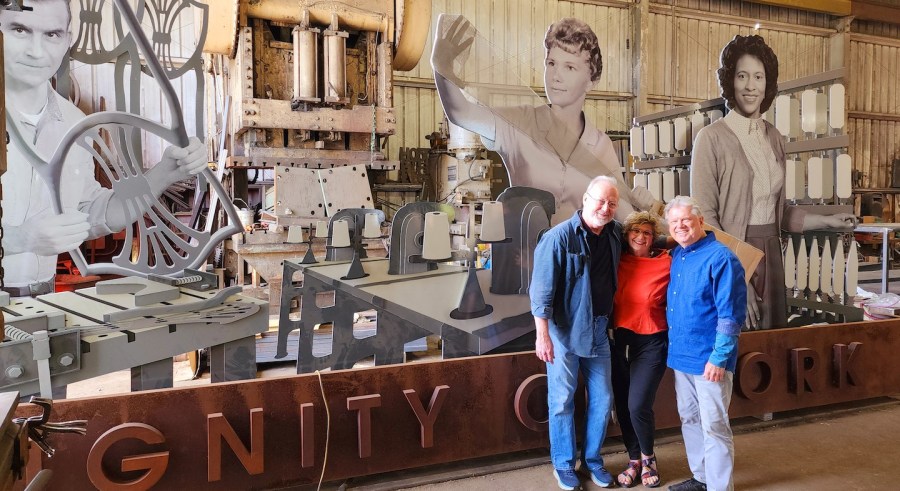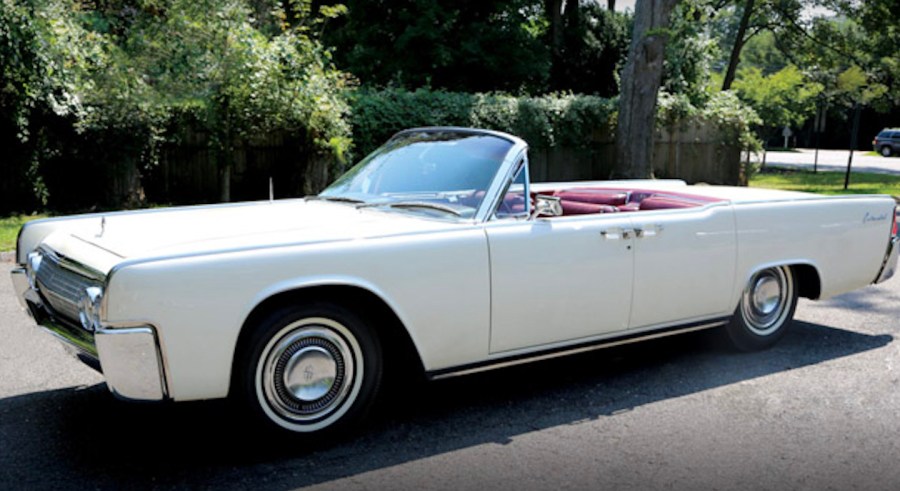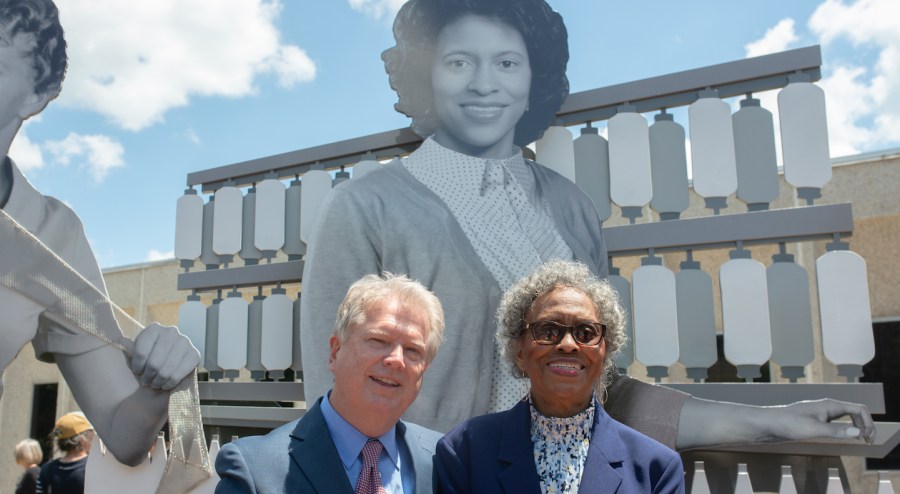White House Gifts shop owner creates ultimate souvenir: a monument to millworkers

Jim Warlick is used to helping tourists capture memories of their trips to Washington. As the owner of White House Gifts, a shop just steps from 1600 Pennsylvania Ave., Warlick sells the hallmarks of a successful D.C. souvenir run: FBI shirts, mugs and blankets bearing the presidential seal and mini replicas of the Constitution.
But now, instead of selling things, the longtime store owner and former Hill staffer is giving the gift of a new monument to his hometown of Morganton, N.C.
Warlick has created what’s believed to be the largest monument in the country honoring millworkers.
“I don’t think they’ve ever been told,” Warlick, 70, says of the stories of the men and women who worked in furniture factories, textile and hosiery mills in the early 20th century.
“I think they’ve been ignored,” sighs Warlick, who knows the history of the millworkers well: His mother, Mary Warlick, was one of them.
“She went in the mill at the age of 16,” Warlick says. “She worked 33 years, literally at the same sewing machine.”
As a child, Warlick says, he was always sensitive to how his mother — who raised three kids on her own on an $80 a week salary — and other millworkers spent eight hours every day.
“It was so loud in the factory that they really couldn’t talk while they were working,” he says.
“For 33 years, she sat there just in her own mind every day. And years back, they painted over the windows of the mills — I think so people wouldn’t look out and wish they were somewhere else,” Warlick says. “So I didn’t forget how hard she worked.”
Warlick left Morganton when he was in his 20s to assist on a political campaign, before landing in Washington in 1978 and working for the late Rep. Lamar Gudger (D-N.C.). He opened the first White House Gifts location in 1992, turning a childhood fascination with political memorabilia into a career, and amassing a vast personal collection of relics and rarities along the way. He has a gallery around the corner from his 15th Street store with an Oval Office replica that he loans out to movie studios, and runs a traveling exhibit on former President John F. Kennedy.
But Warlick always kept close ties to where he grew up. The married Alexandria, Va., entrepreneur was visiting a local museum in North Carolina in 2017 when he realized there was a piece of his hometown’s heritage that was missing.
“I noticed that there were a lot of nice color portraits of bankers, and industry leaders and mill owners, but there really wasn’t a great display about the millworkers,” Warlick says.
That began his mission to remember millworkers, developing a plan to interview the last living workers about their lives for a documentary and creating a first-of-its-kind monument to honor them.

Jim Warlick is seen with monument designer Joe Wider from Pinehouse Design, Columbia, S.C., and Dee Dee Perkins, founding member of Workers’ Legacy Foundation. (The Workers’ Legacy Foundation)
But making his monumental dreams into a reality would take time and money. So the White House Gifts owner and political collecting fan — he has 1.2 million campaign buttons in storage — decided to auction off some of his most cherished artifacts to help fund the project.
“My favorite item that I owned was the last automobile that John Kennedy got out of the morning of November 22, 1963, in Fort Worth,” Warlick says. He sold the white convertible, known as “the last car to safely transport President Kennedy” for $400,000. He also sold 12 replicas of gowns worn by former first ladies, along with documents signed by Kennedy and Abraham Lincoln.

The car that then-President Kennedy and Jackie Kennedy were in earlier on the day he was killed in Dallas, in 1963. (The Workers Legacy Foundation)
The result, Warlick says, has been “worth every penny.”
Over the weekend, the “Dignity of Work” monument was dedicated in front of the History Museum of Burke County in North Carolina. The 22-foot-long and 10-foot-high statue weighs more than 9,000 pounds and features the images of three millworkers: Warlick’s mother; 90-year-old Anne Ramseur, a textile factory worker; and Warlick’s uncle, Claude Moore, a furniture mill employee.
In addition to the porcelain enamel and steel monument, an exhibition about millworkers will run for two years at the museum.

Jim Warlick and Anne Forney Ramseur. (Jesse Barber/The Workers Legacy Foundation)
“People need to know their local history to build pride in what their ancestors did and how this community got to the way it is today,” Warlick says.
“I think my mother [and millworkers] always felt that they were looked down upon because they didn’t have great educations. They worked in the mills and they just didn’t get the recognition I think for what they did.”
“Knowing that my mother, who probably was always looked down upon as a mill worker,” Warlick says of his mom who died in 2013, his voice breaking, “Now she’s 11 feet high.”
“So they won’t look down on millworkers now.”
Copyright 2023 Nexstar Media Inc. All rights reserved. This material may not be published, broadcast, rewritten, or redistributed. Regular the hill posts







